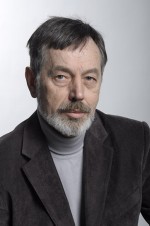
Head of Laboratory
PhD (Physical and Mathematical Sciences)
Laboratory of Noises and Sound Fluctuations in the Ocean
Ocean Physics
36, Nakhimovskii prospect, Moscow, 117997, Russia
+7(499)124-72-90
Send a message via the form on the site
* Required fields
Acoustician, candidate of physico-mathematical sciences (1986), since 2005 - head of Laboratory of noise and fluctuation of sound in the ocean.
In 1973 he graduated from the faculty of general and applied physics of Moscow physical-technical institute. Since 1978 he worked at the Institute of Oceanology in the Department of ocean acoustics.
In the early 1980 he was involved in studies of noise in the ocean using autonomous deep-water bottom stations, developed in the Laboratory of noises and sound fluctuations in the ocean.
He participated in numerous marine expeditions in various regions of the World ocean (Pacific, Atlantic, Indian), where he conducted both basic research of ocean noise – the spectral composition, direction, and applied measurement of noise from surface and underwater springs.
In 1986 in his dissertation it was developed a new method of noise tomography of ocean bottom used for determination of the acoustic parameters in the sediment – profile of the speed of sound and reflection coefficients. In this method, the source of the probing signal for the first time proposed to use the noise from a moving ship, and the restoration of acoustic parameters of the bottom to carry out the analysis of interference structure of broadband sound recorded on the bottom. It was proposed and investigated various schemes for solving the inverse problem for non-traditional Geophysics differential hodographs.
In 1997, generalizing the application of the method of imaging noise on the marine environment in general, he showed that in this way you can also restore the profile of sound speed in the water layer.
Since 2001 his research interests are closely connected with the study of the impact of anthropogenic noise on marine mammals. On the shelf of Sakhalin island in the area of oil development, and there only, is the annual summer fattening small (about 100 individuals) of the endangered Okhotsk-Korean population of gray whales. The results of modeling the propagation of noise in the feeding area of gray whales performed in his Laboratory, showed that the negative effects of industrial noise can lead to the disappearance of this population.
For monitoring the effects of noise on marine mammals under his leadership, it was developed a unique sediments stations, allowing in the real time pass the levels of underwater noise in space communication in the Internet.
In 2002, 2004-2006, he organized a sea expedition in the feeding area of gray whales, where he led the acoustic monitoring of noise construction. As protective measures to preserve whale populations, he developed restrictive criteria for the noise and its duration.
Since 2004 he is elected the member of several international scientific commissions of the IUCN (ISRP, IISG, WGWAP), where he works on the conservation of gray whales. He is the member of the Board of the Russian Marine Mammal Council.
He is the author of inventions and more than 90 scientific papers.